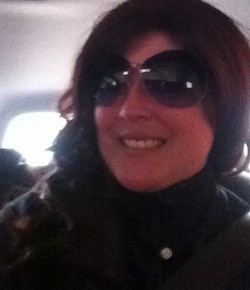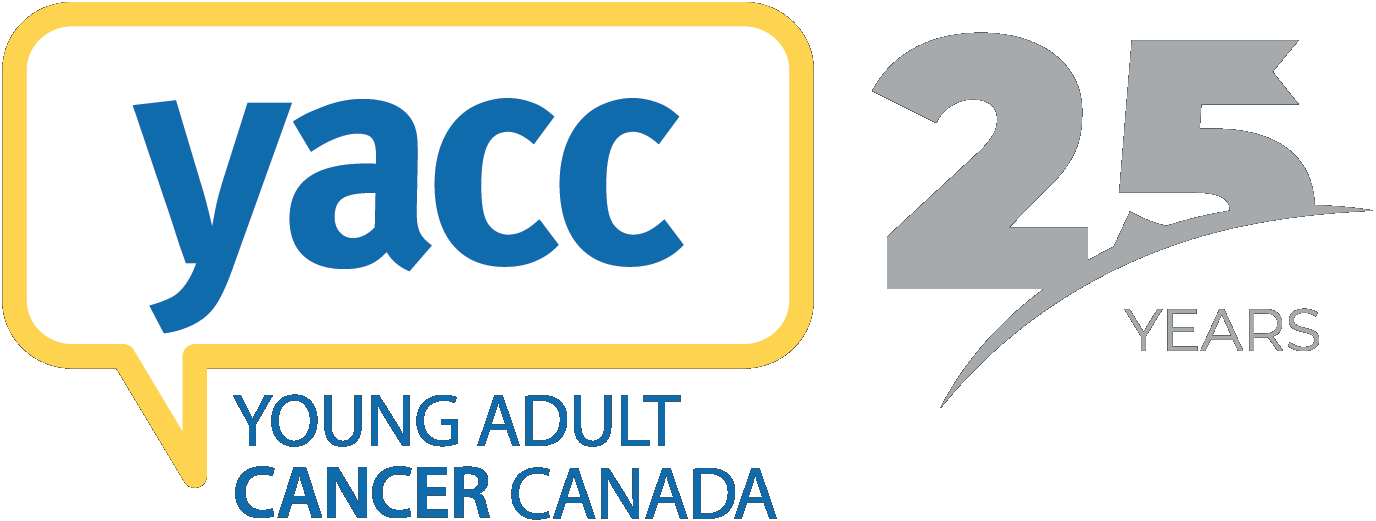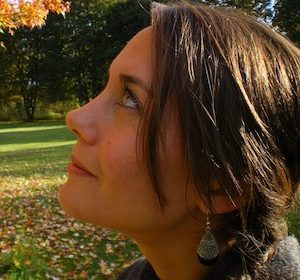
Stacey Longson
Age: 32
Hometown: Beaverlodge, AB
What was your diagnosis? Acute Myeloid Leukemia
What school did you attend? University of Lethbridge
What are your career goals?
I was working towards my CMA, now I’m not so sure because it is unlikely that I will be able to return to what I was doing prior to getting ill.
What was your occupation? Revenue Accountant
Your cancer experience:
How did you find out you were sick? What led to your diagnosis?
By fluke, I was feeling unusually tired which I believed was due to the stress and hours I was putting in at work. I had a follow up with my family GI Specialist about something completely unrelated, and his first words to me were, “You look like shit,” and then, “Something is wrong, I can feel it, take these reqs upstairs to the lab ASAP.” As the story goes, the pathology lab at the University of Alberta called five hours later asking questions about symptoms, etc. By 8 a.m. the next day, I got a call asking me how fast could I get to the hospital.
What year was it? What was your age at the time? June 3, 2011. I was 29.
In which hospitals were you treated?
University of Alberta Hospital, Cross Cancer Institute, Tom Baker Cancer Centre, and Foothills Medical Centre.
At what level of education were you at diagnosis?
University degree completed.
What were your first thoughts when diagnosed?
I didn’t have any thoughts; I was completely numb.
How did your family react?
Disbelief, shock, but then very supportive. My parents and sisters dropped everything as fast as they could and all were by my side within 24 hours or less.
How did your friends react?
Shock, disbelief and supportive for the most part. You find out who your friends really are very quickly when you go through a traumatic event such as this. The friends that have remained true, they haven’t treated me differently. Are they aware of my limitations, yes, but other than that, nothing has really changed.
What did your treatment consist of?
Induction Rounds: Two rounds 24/7 cycle, Idarubicin + HI dose Cytarabine and then Mitoxantrone + HI dose Cytarabine
Consolidation Rounds: two rounds (3 hours every 12 hpurs on days 1, 3 & 6) of HI dose Cytarabine
Transplant: Two rounds full body radiation. Busuflex, flurarabine, “rabbit protein enzyme” (not sure of actual name), and methotrexate.
Describe the non-medical side
The first induction round of chemo did nothing. My body did not respond to the chemo at all, which was causing great worry among the doctors, and I was feeling fine — no hair loss, no nausea, and the total belief that I was not sick enough to be there. That soon changed. Second induction round is where all the s**t hit the fan.
I ended up with a bacterial infection in the form of a perianal abscess, and because it had nowhere to go, and because my counts were so low, it turned into a flesh eating bacterial infection and led to eight OR trips for surgeries and wound vac placements. This is where the hair loss took place and the nausea and vomiting started, and I got physically weak, very weak.
Emotionally I was numb. I was not angry or scared, I was numb. But, I had a huge support base so I was never alone which I think saved me from a lot of emotional trauma. As it stands, the list of side effects I have had is too long and too intense to just list out. Basically, if you can think of one I have had it.
As the years pass, I am still very physically weak which ties into my frustration and emotional upheaval because I am not where I think I should be by now. Doctors have shared with me that I have unrealistic expectations of myself, and to that I just go “pffffffp.”
What is your current medical status?
I’m in remission, but still undergoing treatments for all the bloody side effects that I have.
How is life different for you now post diagnosis?
Physically, I am much weaker, which limits the activities I enjoy, and my energy levels really suck. Emotionally, I am still a positive person but pre-diagnoses, I never gave myself emotional whiplash. Now, it happens more than I like. I find it hard to relate to what I call “normal” people because my patience level is low when I hear others complaining about what I consider to be “first world problems,” and that makes me feel like a jerk sometimes. I am connecting with my spiritual self more and more these days; I am not a religious person and follow no organized religion. To me, spirituality is a very personal journey.
What was the toughest part of your challenge?
The loss of independence. To this day, I am so reliant on other members of my family and friends that it is a major sore spot and frustration for me because I used to be so independent, and I thrived on that.
What was the best lesson you took away from your challenge?
To allow others in emotionally, and to allow myself to depend on others and be ok with the fact that is alright to ask for help.
What really motivated you to keep going while you were sick?
My family; they are my world and I would never willingly cause them heartache or pain. We are all so close.
What are your thoughts and feelings about your illness now? Have they changed since before your diagnosis?
Three years later, I am just processing the anger, frustration, and the reality of what has happened because I have been numb for so long — my go to defense mechanism. I have never asked “why me?”, or been in a “poor me” state of mind. Everything happens for a reason; it is up to use what we do with it.
What are some preventative measures that people can take to lower their risk of having an experience like yours?
There are none. Cancer has no barriers. All a person can do is to live the best, healthiest life they can.
Did you attend any support groups during your challenge?
I’ve only just started attending YACC Localife Calgary events this past April 2014. It was interesting and I did enjoy myself; we will see if it helps. Too early to say.
Before April 2014, I was not ready to open myself up to these events because I still find thinking about all I have been through, and all I still have yet to go through to be very painful and raw. My doctors and family have been the real push behind attending my first YACC in April.
How are you connected with Young Adult Cancer Canada?
I made a promise to my parents and doctors in March 2014 that I would attend the next YACC Localife event which was the Easter egg hunt back in April. It was good for me, and I intend to keep attending these events. Even more, I am going to the Retreat Yourself BC this August, panicking but going to attend!








